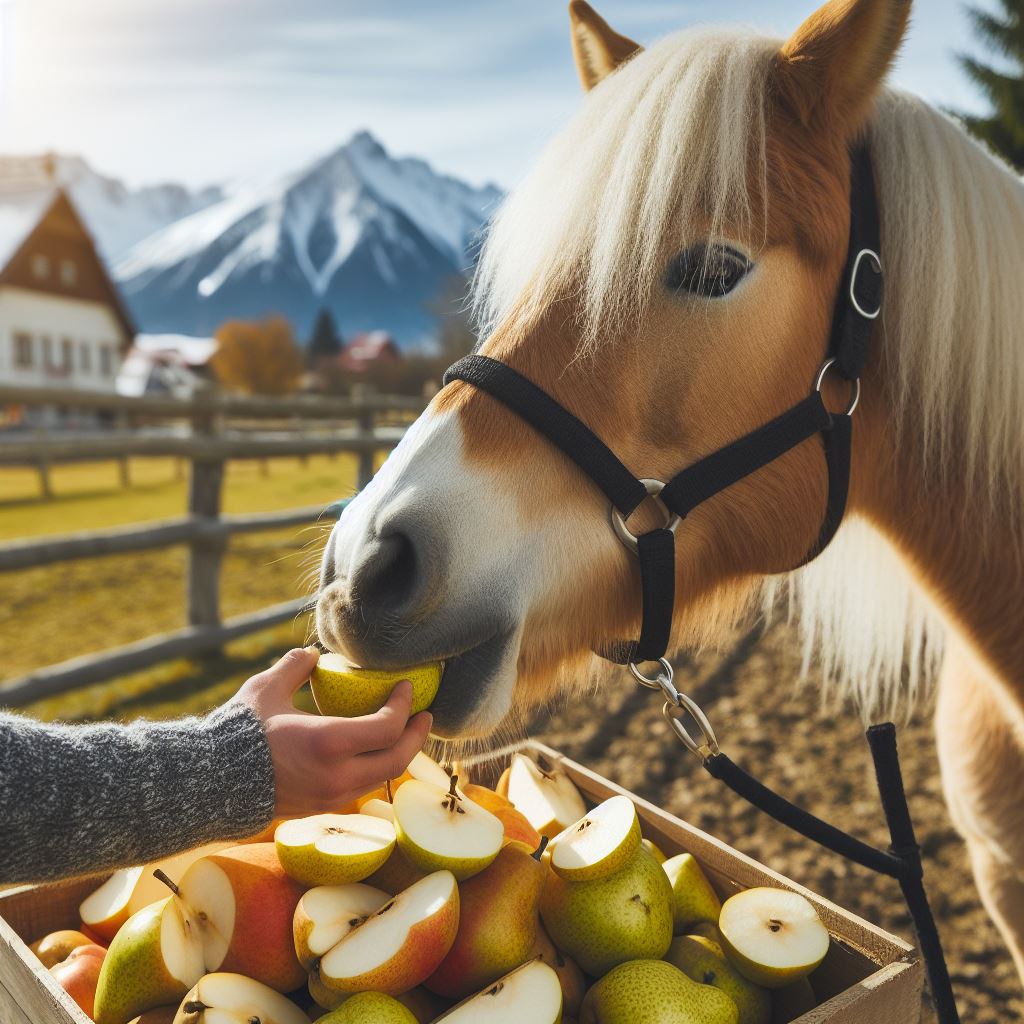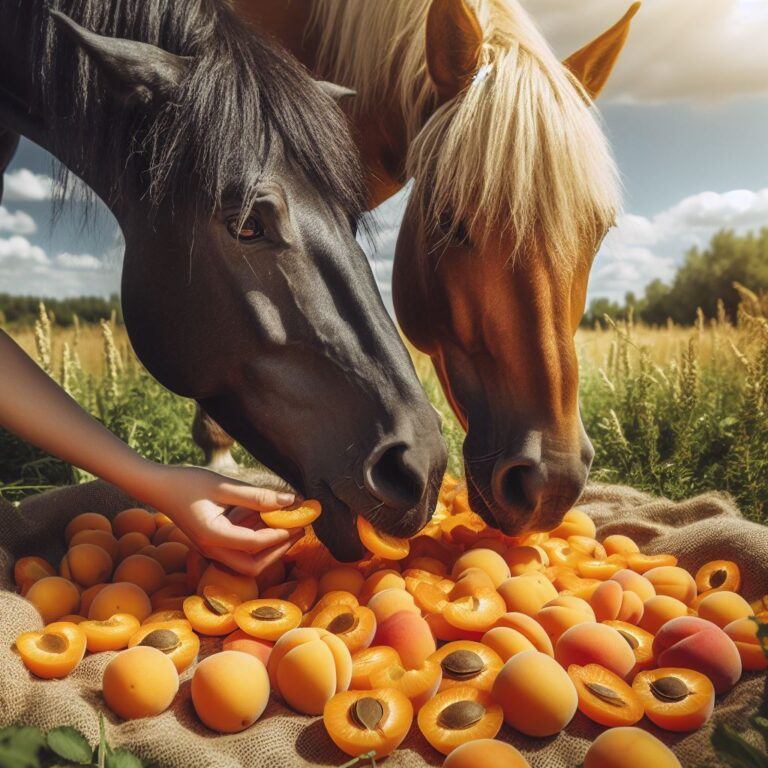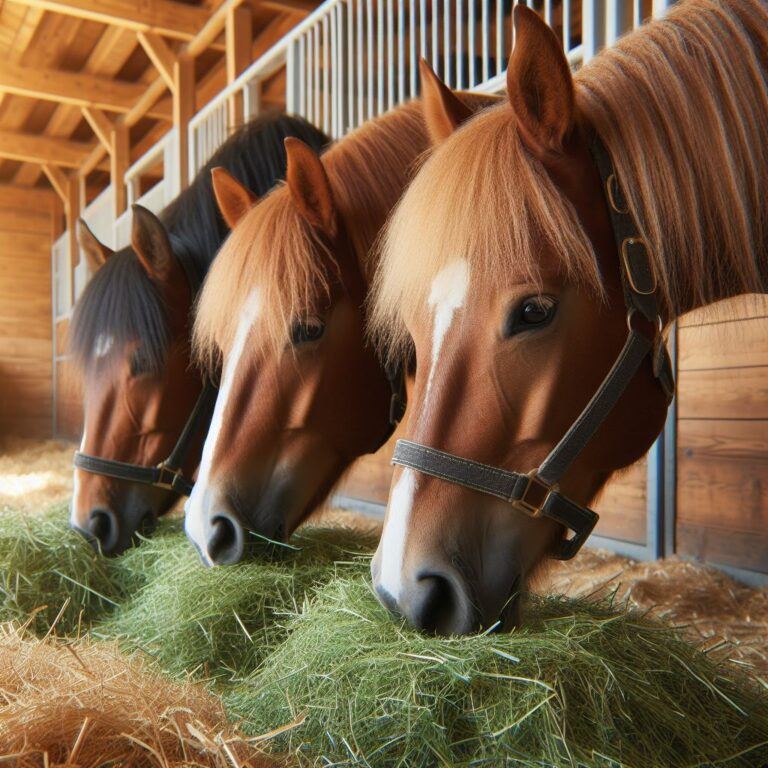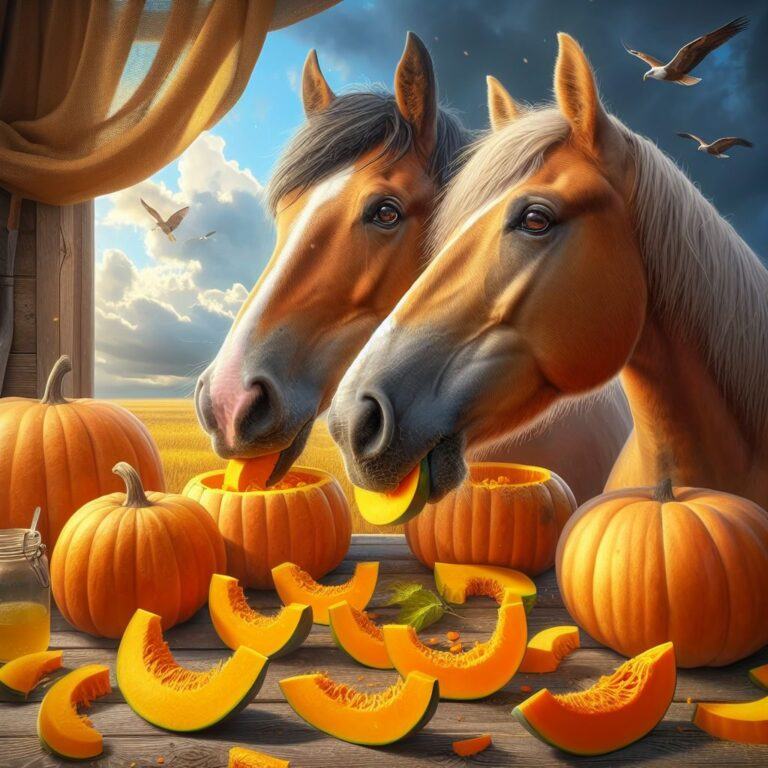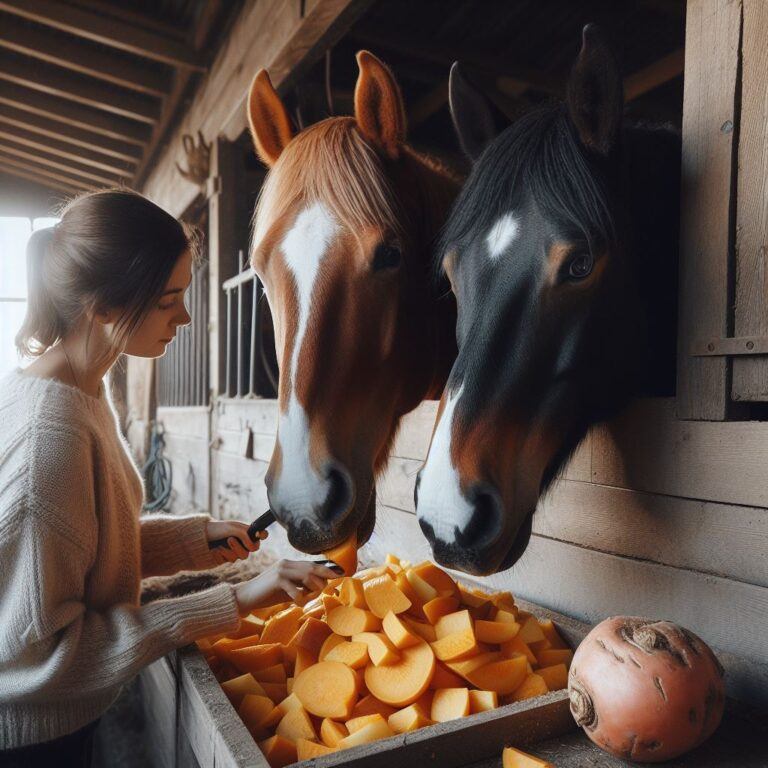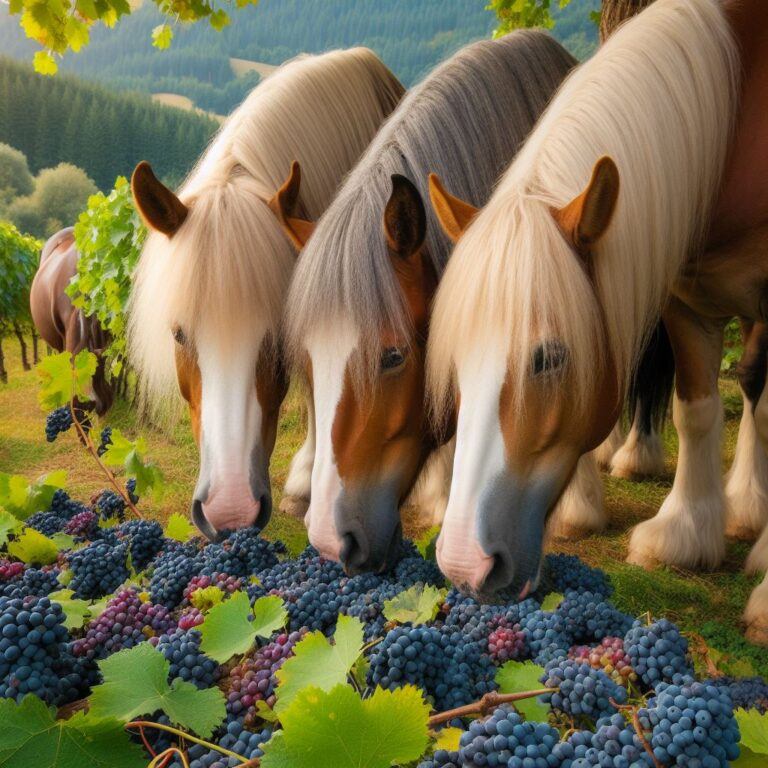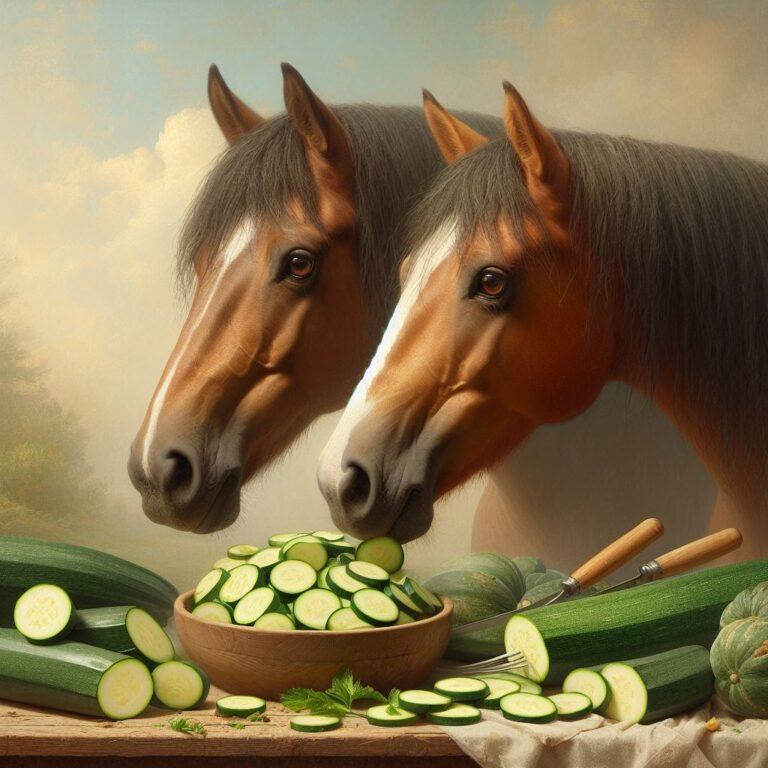Can Horses Safely Eat Pears
Yes, horses can safely eat pears in moderation as an occasional treat. Pears are not toxic to horses and provide some nutritional benefits, but they should not make up a large portion of a horse’s diet due to their high sugar and calorie content.
Nutritional Composition of Pears
Pears are high in natural sugars, primarily fructose and glucose. On average, a medium-sized pear contains around 17 grams of sugar, which is relatively high compared to other fruits like apples or oranges.
These sugars can provide a quick energy boost for horses, but excessive consumption can lead to digestive upset, weight gain, and potential long-term health issues like laminitis or insulin resistance in horses prone to such conditions.
Despite their high sugar content, pears do offer some nutritional benefits.
They are a good source of fiber, with a medium pear containing around 6 grams of fiber, which is essential for proper digestion in horses.
Pears also contain vitamins and minerals like vitamin C, vitamin K, and potassium, which contribute to overall health and immune function.
The Role of Pears in a Horse’s Diet
It’s important to remember that while pears can be a tasty treat for horses, they should never replace a horse’s primary diet of fresh hay or grass.
We know horses are herbivores, and their digestive systems are designed to process high-fiber plant materials, not large quantities of sugary fruits.
A balanced diet for a horse should consist primarily of good-quality hay or grass, supplemented with a concentrated feed if necessary, based on the horse’s age, activity level, and specific nutritional requirements.
Treats like pears, apples, watermelon or pumpkin should only be offered as occasional supplements and should not make up a significant portion of the horse’s daily caloric intake.
Proper Portion Control and Preparation
When considering feeding pears to your horse, it’s crucial to practice portion control. The amount you feed should be based on your horse’s size and activity level.
As a general guideline, a small to medium-sized horse should be limited to one or two pears per day, while larger or more active horses may be able to consume slightly more, up to three or four pears.
It’s also important to consider the timing of when you feed pears to your horse.
Ideally, they should be offered as a treat after the horse has consumed its hay or grass ration, rather than as a replacement for their regular forage.
Proper preparation is also essential when feeding pears to horses. Pears should be thoroughly washed to remove any potential pesticide residues, and they should be sliced and cored to reduce the risk of choking.
Whole pears can be a choking hazard for horses, as they may try to swallow them whole without properly chewing.
Introducing Pears to Your Horse’s Diet
If you decide to feed pears to your horse, it’s essential to introduce them gradually into their diet to allow their digestive system to adjust to the new food.
I always start with small portions, such as a few slices of pear, and monitor my horse’s reaction closely.
Some horses may experience digestive upset, such as loose stools or gas, if they consume too many pears or if their systems are not accustomed to the high sugar content.
If you notice any adverse reactions, then stop feeding pears and consult with your veterinarian.
It’s also important to consider any existing health conditions your horse may have, such as metabolic disorders or insulin resistance, which may make the high sugar content of pears unsuitable or potentially harmful.
The Bottom Line
While horses can safely eat pears in moderation as an occasional treat, it’s crucial to exercise caution and follow proper portion control and preparation guidelines.
A balanced, hay-based diet should always be the foundation of a horse’s nutrition, with treats like pears being offered as supplements rather than main sources of sustenance.
When introducing pears or any new food for that matter to our horse’s diet it’s always best to consult with a veterinarian or a horse nutritionist to ensure we are meeting our horse’s specific dietary needs and addressing any potential health concerns.
With the right knowledge and precautions, pears can be a tasty and nutritious occasional treat for our horses!

